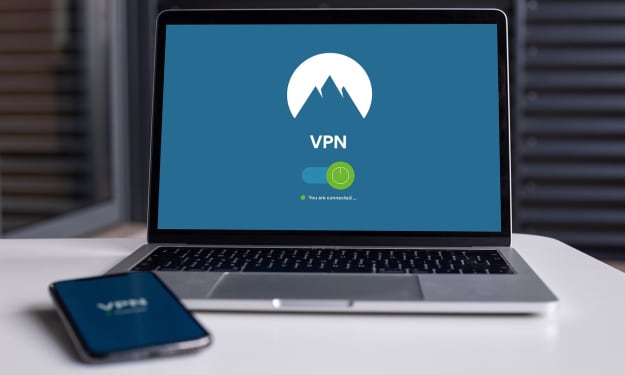Are Free VPNs Worth Using? A Comprehensive Comparison
Table of Contents

Are Free VPNs Worth Using? A Comprehensive Comparison
In this article, we will compare six free VPNs and assess whether they are worth using. With the increasing need for online privacy and security, VPNs have gained popularity. However, not all VPNs are created equal, and some free options may come with drawbacks and risks. Read on to discover the pros and cons of these free VPN services and make an informed decision to protect your data.
Table of Contents
1. Introduction: The Importance of Choosing a Reliable VPN
2. Proton VPN: A Popular Choice, But Trust Concerns Arise
3. Free VPN: The Suspicious Option That Raises Many Questions
4. Windscribe: Limited Bandwidth but Decent Performance
5. Hotspot Shield: Slow Speeds and High Premium Pricing
6. Atlas VPN: The Hidden Gem with Great Speed and Privacy
7. Tunne lBear: Cute Marketing, Limited Data, and Basic Features
8. Conclusion: Free VPNs vs. Premium VPNs
9. Frequently Asked Questions
1. Introduction: The Importance of Choosing a Reliable VPN
In today's digital landscape, maintaining online privacy and security has become crucial. VPNs, or Virtual Private Networks, offer a way to protect your data and browse the internet securely. However, not all VPN services are trustworthy or provide reliable performance. This article aims to evaluate six free VPNs to help you make an informed decision.
2. Proton VPN: A Popular Choice, But Trust Concerns Arise
Proton VPN is widely recognized for its popularity and offers a free VPN service with unlimited data. It boasts fast speeds and has servers in the United States, Japan, and the Netherlands. However, Proton VPN's reputation took a hit due to a concerning incident with its sister company, ProtonMail, which raised doubts about data protection. Additionally, the free version lacks access to premium features such as streaming and ad blocking. Overall, while Proton VPN may seem appealing, trust issues and limited features make it a questionable choice.
3. Free VPN: The Suspicious Option That Raises Many Questions
Free VPN, also known as freevpnapp.org, is a VPN service that lacks transparency and raises many unanswered questions. The company's website provides minimal information, making it difficult to determine its background, jurisdiction, or ownership. While they claim to have a no-logs policy and prioritize user privacy, the lack of clarity and vague details undermine their credibility. Furthermore, the free version offers incredibly slow speeds, and the premium version comes at an exorbitant price. Considering these factors, Free VPN is not recommended.
4. Windscribe: Limited Bandwidth but Decent Performance
Windscribe is a popular free VPN option that provides two gigabytes of monthly bandwidth for free users. With a confirmed email address, you can increase this limit to 10 gigabytes per month. While Windscribe offers reasonable speeds and supports streaming, the data cap restricts extensive usage. The premium version of Windscribe presents better value, but its security reputation took a hit due to a significant security incident in the past. Despite its limitations, Windscribe can serve as a casual free VPN option for light usage.
5. Hotspot Shield: Slow Speeds and High Premium Pricing
Hotspot Shield is a freemium VPN service recently acquired by Aura, a security company. The free version, Hotspot Shield Basic, comes with throttled speeds and limited bandwidth. While the premium version offers better performance, its pricing at $96 per year is higher compared to other options. The slow speeds and lackluster free version make Hotspot Shield Basic impractical for everyday use. Considering alternative VPNs with better performance and value would be a wiser choice.
6. Atlas VPN: The Hidden Gem with Great Speed and Privacy
Atlas VPN, recently acquired by NordVPN, offers a freemium VPN service that stands out from the rest. Although not immediately apparent on their website, Atlas VPN provides a free version with two gigabytes of daily bandwidth, totaling 60 gigabytes per month. It offers impressive speeds and upholds a strict no-logs policy. While the free version lacks streaming and premium features, upgrading to their competitively priced premium version is worthwhile. With its performance, transparency, and affordability, Atlas VPN is a strong contender among free VPNs.
7. TunnelBear: Cute Marketing, Limited Data, and Basic Features
TunnelBear, owned by McAfee, operates as a freemium VPN. Its free version offers a meager 500 megabytes of data per month, making it highly restrictive. While TunnelBear's speeds are decent, the inability to access streaming services and lack of advanced features diminish its appeal. The premium version comes at a higher price compared to other superior options in the market. Unless you are drawn to TunnelBear's marketing and bear-themed interface, it is recommended to explore alternatives that provide better value for your money.
8. Conclusion: Free VPNs vs. Premium VPNs
After a comprehensive evaluation, it is clear that not all free VPNs are worth using. While Proton VPN and Atlas VPN offer decent free services, concerns about trust and limited features persist. Premium VPNs, such as NordVPN and Surfshark, provide better overall performance, features, and security. When considering a VPN, it is crucial to weigh the advantages and drawbacks of free options against the benefits offered by premium VPNs to ensure optimal online privacy and security.
9. Frequently Asked Questions
1. Are free VPNs safe to use? While some free VPNs prioritize user privacy, others may engage in questionable practices. It is crucial to research and choose reputable VPN providers with transparent privacy policies.
2. Can I use free VPNs for streaming? Most free VPNs limit access to streaming services. If streaming is a priority, it is advisable to opt for premium VPNs that offer dedicated servers for streaming platforms.
3. Do free VPNs offer the same level of security as premium VPNs? Premium VPNs often offer enhanced security features and better encryption protocols. Free VPNs may provide basic security but could lack advanced measures to protect your data effectively.
4. Why do premium VPNs come at a cost? Premium VPNs invest in robust infrastructure, server networks, and customer support. The subscription fees help sustain the quality of service and continuous improvements.
5. Should I upgrade to a premium VPN? If you value your online privacy and require consistent performance, upgrading to a premium VPN is highly recommended. The additional features and stronger security measures justify the cost for many users.





Comments
There are no comments for this story
Be the first to respond and start the conversation.